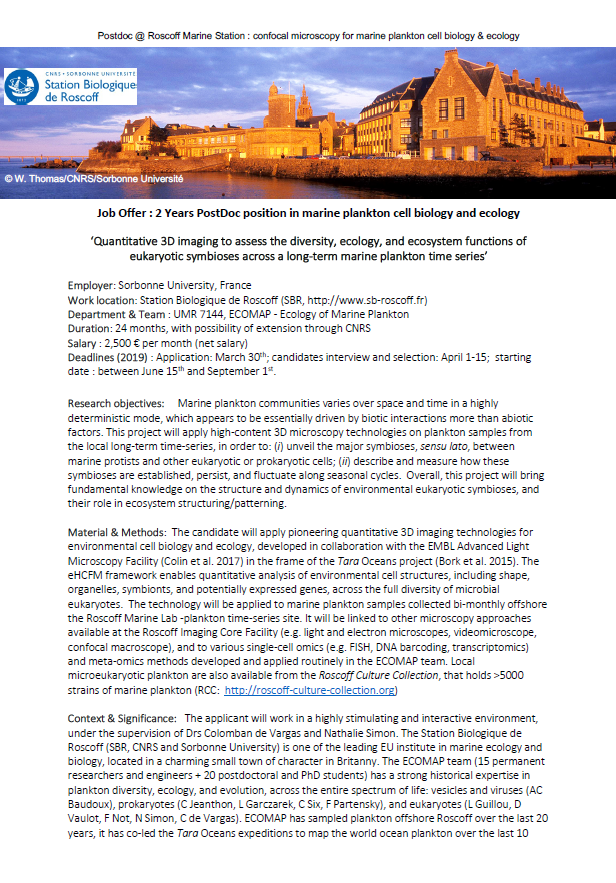2 Years PostDoc position in marine plankton cell biology and ecology, Roscoff, France
‘Quantitative 3D imaging to assess the diversity, ecology, and ecosystem functions of eukaryotic symbioses across a long-term marine plankton time series’
Research objectives: Marine plankton communities varies over space and time in a highly deterministic mode, which appears to be essentially driven by biotic interactions more than abiotic factors. This project will apply high-content 3D microscopy technologies on plankton samples from
the local long-term time-series, in order to: (i) unveil the major symbioses, sensu lato, between marine protists and other eukaryotic or prokaryotic cells; (ii) describe and measure how these symbioses are established, persist, and fluctuate along seasonal cycles. Overall, this project will bring
fundamental knowledge on the structure and dynamics of environmental eukaryotic symbioses, and their role in ecosystem structuring/patterning.
Material & Methods: The candidate will apply pioneering quantitative 3D imaging technologies for environmental cell biology and ecology, developed in collaboration with the EMBL Advanced Light
Microscopy Facility (Colin et al. 2017) in the frame of the Tara Oceans project (Bork et al. 2015). The eHCFM framework enables quantitative analysis of environmental cell structures, including shape, organelles, symbionts, and potentially expressed genes, across the full diversity of microbial eukaryotes. The technology will be applied to marine plankton samples collected bi-monthly offshore the Roscoff Marine Lab -plankton time-series site. It will be linked to other microscopy approaches available at the Roscoff Imaging Core Facility (e.g. light and electron microscopes, videomicroscope, confocal macroscope), and to various single-cell omics (e.g. FISH, DNA barcoding, transcriptomics) and meta-omics methods developed and applied routinely in the ECOMAP team. Local microeukaryotic plankton are also available from the Roscoff Culture Collection, that holds >5000 strains of marine plankton (RCC: http://roscoff-culture-collection.org)
For additional information please check the job offer.
Closing date 30 March 2019.
